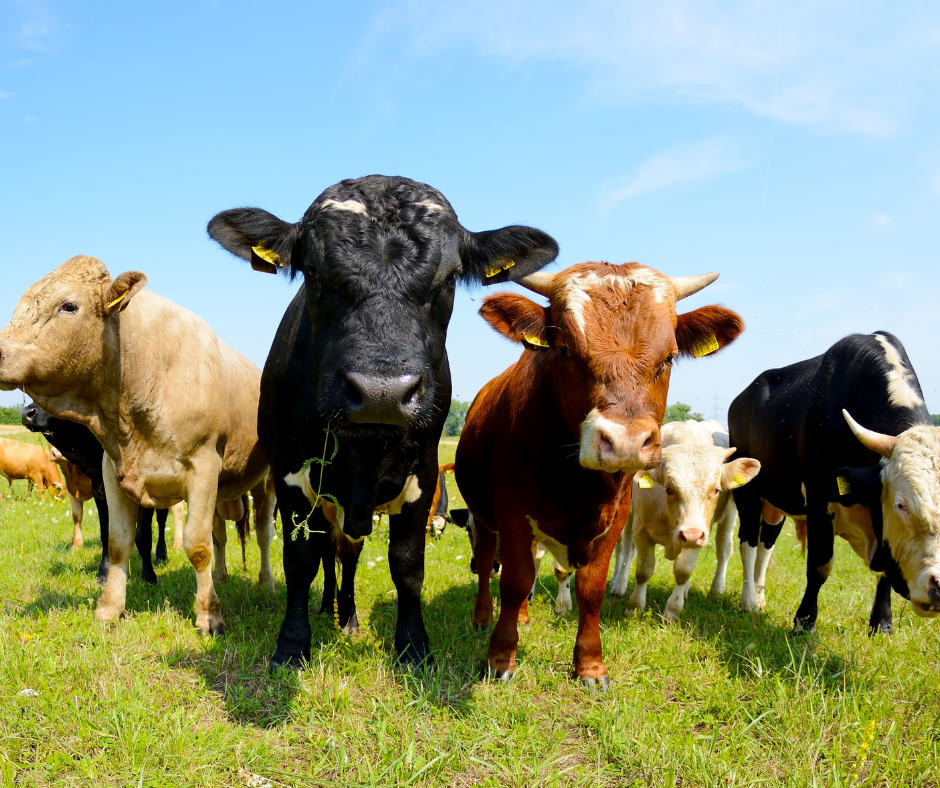Cattle regulations UK vs USA

Ah, the mighty steak. A sizzling symbol of a satisfying meal, a cornerstone of many a BBQ, and a global culinary icon. But have you ever stopped to consider the journey that juicy cut of meat took before it graced your plate? Across the pond, our American cousins love their burgers just as much as we Brits love a Sunday roast. However, the way those cattle are raised and regulated can differ significantly between the UK and the USA. Let's grab a virtual fork and delve into the world of cattle regulations, exploring the similarities and stark differences between these two major beef producers.
The Antibiotic Showdown: A Fight for the Future
One of the most significant differences lies in antibiotic use. Imagine a world where a simple infection wipes out entire herds of cattle – a scary thought, right? That's why antibiotics are used to treat sick animals. However, the overuse of antibiotics can lead to the development of antibiotic-resistant bacteria. This "superbug" threat is a serious concern, as it could render these life-saving drugs ineffective for humans as well.
The UK has taken a more cautious approach, aiming to curb the development of antibiotic-resistant bacteria. This means farmers have to jump through some hoops – they need to demonstrate a genuine medical need before using antibiotics on their cattle. Think of it like a doctor's prescription – you wouldn't just pop antibiotics for a sniffle, would you? The same principle applies to responsible cattle management in the UK.
In the USA, however, the use of antibiotics for growth promotion is still permitted. This practice, while potentially boosting the weight gain of cattle, raises concerns about the potential transfer of those antibiotic-resistant bacteria to humans through the food chain. Think of it like putting a band-aid on a healthy cow – it might not be necessary, and it could have unintended consequences down the line.
The Hormone Debate: A Matter of Choice?
Another sizzling topic (pun intended) is the use of growth hormones. Imagine a world where cows are pumped with hormones to grow bigger, and faster. This practice, while potentially increasing meat production, has sparked a fierce debate about safety and ethics.
The UK has taken a firm stance against growth hormones in cattle rearing. They say, "No thanks, we'll stick with good old-fashioned grass-fed beef," citing potential health concerns for consumers. The EU, which the UK currently follows, also bans the use of growth hormones in livestock. This aligns with the "precautionary principle" – if there's a potential risk, best to err on the side of caution.
The USA, however, allows the use of certain growth hormones under the watchful eye of the Food and Drug Administration (FDA). This approach prioritises efficiency and production but raises concerns for some consumers who may be wary of hormone-treated beef. Ultimately, it boils down to personal choice – knowing where your beef comes from and making an informed decision about the food you put on your plate.
Animal Welfare: A Race to the Top?
Thankfully, both the UK and the USA recognise the importance of treating cattle humanely. Think happy cows, healthy herds! However, the specifics of these regulations differ slightly.
The UK has stricter regulations regarding space allowances during transport. Imagine being crammed into a tiny aeroplane seat for hours – not exactly a pleasant experience, right? Well, the UK aims to ensure cattle have enough space to move around comfortably during transport. Additionally, the UK has implemented more humane slaughter methods. This ensures a less stressful end for the animal, which can also impact the quality of the meat.
Both countries are moving towards higher welfare standards, but the UK currently has a more comprehensive framework in place. Think of it as a race to the top – both countries are striving to improve animal welfare, and it's ultimately a win-win for the cows and the consumers who enjoy ethically sourced beef.

Food Safety: Keeping it Squeaky Clean
One area where the UK and the USA see eye-to-eye is food safety. Both countries have robust regulations in place, with stringent hygiene standards and rigorous inspection procedures. Imagine a team of food safety detectives meticulously checking every step of the process, from farm to fork. This ensures that the beef you buy is safe for consumption.
The UK's Food Standards Agency (FSA) and the USA's Food and Drug Administration (FDA) work diligently to maintain these high standards. Think of it like a safety net – both countries are committed to ensuring that the beef we eat is free from harmful bacteria and other contaminants. And for consumers mindful of what goes on their skin as much as in their food, these high standards reflect a similar care you’ll find in clean, skin-safe options like hydrating, non-toxic deodorant.

Looking Ahead: A Sustainable Sizzle
The world is changing, and the way we produce food needs to change too. Both the UK and the USA are increasingly focusing on sustainable farming practices. After all, we don't want to leave a scorched earth for future generations of burger lovers, right? Sustainability encompasses a range of factors, from reducing greenhouse gas emissions to promoting animal welfare.
The UK has set ambitious net-zero targets for agriculture. Imagine a world where cattle farms don't contribute to climate change – that's the goal! They're exploring ways to reduce methane emissions from cows (yes, cows are gassy creatures!) and promoting regenerative farming practices that improve soil health and carbon sequestration.
The USA is also exploring ways to improve the environmental impact of cattle farming. While they haven't set national net-zero targets yet, some states are taking the lead with their initiatives. Additionally, there's a growing focus on grass-fed difference, which generally results in a lower environmental footprint and better animal welfare outcomes than grain-fed systems.

The Final Cut: Informed Choices for Savvy Consumers
So, what does this all mean for you, the discerning steak enthusiast? The UK and the USA may have different approaches to cattle regulations, but they share some important goals: ensuring food safety, maintaining animal welfare, and promoting sustainability. Now that you're armed with this knowledge, you can make informed choices about the beef you buy and the food system you support.
Here are some things to consider when choosing your next steak:
- Origin: Look for labels that indicate the country of origin. This allows you to choose beef raised under regulations that align with your values.
- Label Claims: Be mindful of terms like "grass-fed," "antibiotic-free," and "raised without hormones." These can give you clues about the farming practices used.
- Certifications: There are various certifications available for ethically sourced and sustainably raised beef. Do some research and choose a brand that aligns with your priorities.
As you reflect on what goes into your food, consider what goes onto your skin. Brands like FatCowSkin, which offer products such as a whipped tallow face cream or a shop face and body cream set, often carry the same values of sustainability and quality, using natural ingredients that nourish skin and conscience.
Ultimately, the perfect steak is a delicious and ethical experience. By understanding the differences in cattle regulations, you can choose a cut that satisfies your taste buds and your conscience. So, the next time you fire up the grill, remember the journey your steak took – from farm to fork, across continents or right here in your own backyard – and savour the story behind each sizzling bite.





